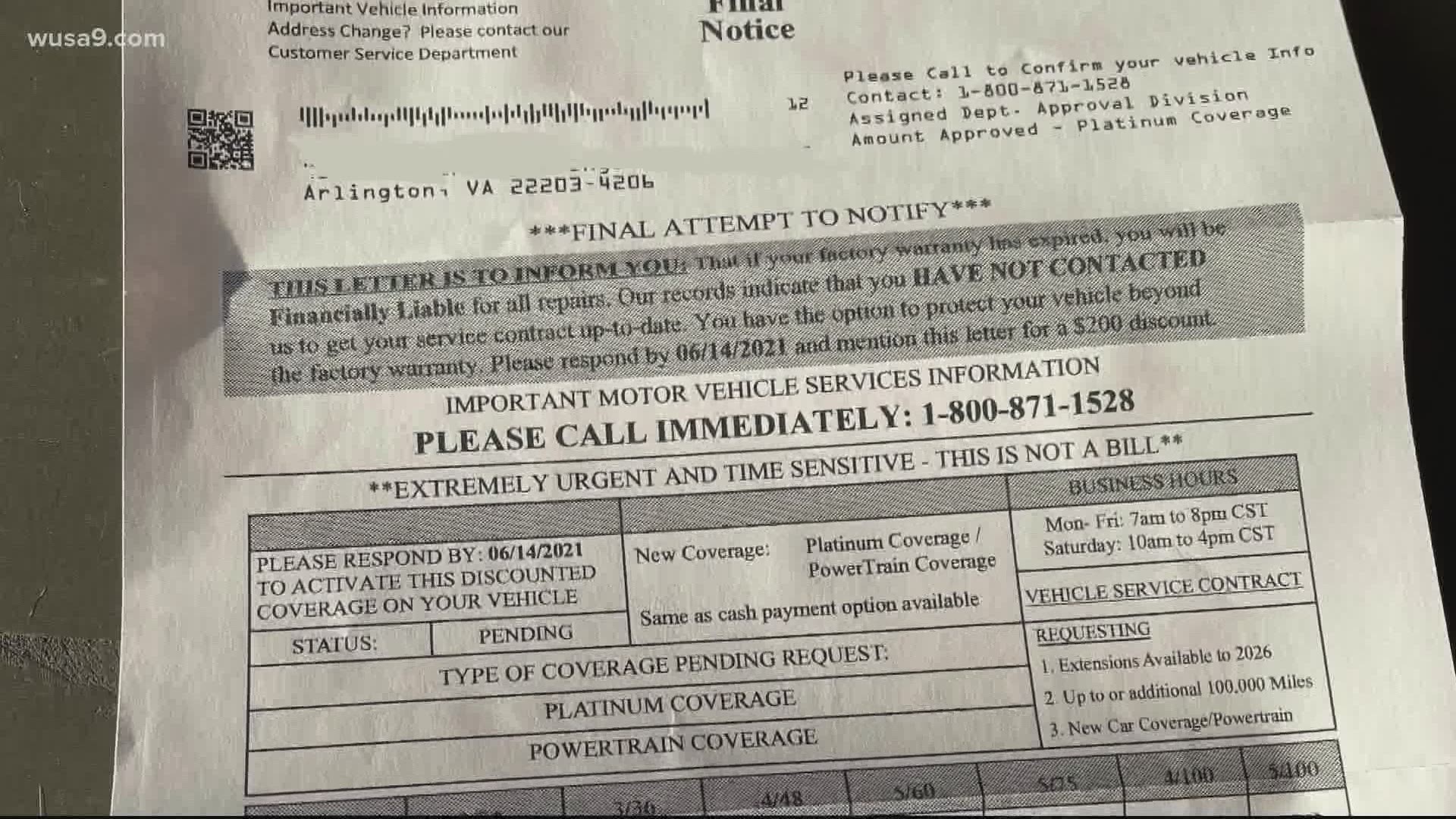WASHINGTON — You have got to be tired by now of those robocalls asking about: “Your vehicle's extended warranty.”
Some people are even getting mail about them. It happens to so many people, it is getting the meme treatment online.
The vehicle warranty extensions can show up by mail or by phone.
It is pretty common to get a number of robocalls trying to sell you products, daily. The interesting part is why so many seem to be about car warranties.
Question:
Why is the car warrant scheme so popular?
Our Sources:
Alex Quilici, CEO of YouMail, a company that specializes in blocking robocalls. Amy Nofziger, Director of Fraud Victim Support for AARP.
Answer:
An overwhelming majority of Americans own cars and have concerns about issues with the vehicles, combine that with the fact that not all these calls are scams.
What We Found:
“It certainly is the number one most reported robocalls to the FCC,” Amy Nofziger said. “People are sick of these calls.”
“A lot of times when you buy a car, you check a box or you sign something that says you can call me or email me or text me with information about the car I purchased and related products,” Alex Quilici explained.
Quilici pointed sometimes your dealer will farm out those warranty calls to other companies.
“But the problem is, there are other people just calling everybody in the hopes of finding somebody who needs what may be a legal product or it may just be a scam,” he said.
“When someone calls telling you that your car is not covered, and puts this fear in you, we listen,” Nofziger explained.
That fear combined with legitimate calls about car warranties creates the perfect scam opportunity.
“It's just kind of a chance call, most of us do own a vehicle,” Nofziger said. “So the criminals can blast out billions of these calls every year [and catch a number of people].”
If you are not already doing it, our experts said don’t answer the call, certainly don’t click any buttons, just hang up.
Sign up for the Get Up DC newsletter: Your forecast. Your commute. Your news.
Sign up for the Capitol Breach email newsletter, delivering the latest breaking news and a roundup of the investigation into the Capitol Riots on January 6, 2021.

